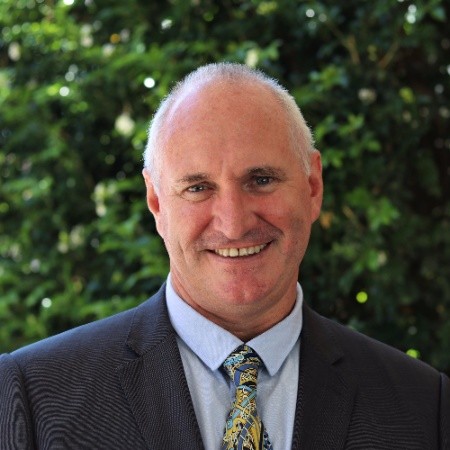Bridging the Gap: How the 2024 Federal Budget Highlights Urgent Attention on STEM
Last Tuesday’s Federal Budget cast a spotlight on tertiary education with measures to alleviate the HECS and HELP debt burdening Australians. It’s a great outcome for those with remaining student loans, but other priorities such as educating our future generation is yet to appear on the Budget agenda.
Let’s take a look at the broader picture.
81% of Australians believe politicians think “too short-term” and more jobs and better outcomes for young people are top concerns among the population for future decades. Despite this, just 3.3% of Australians ranked education as a top priority for the recently unveiled Federal Budget – well behind the cost of living at 53%. The cost of living is a critical challenge to address, but it is also important to consider education.
With drastic skills shortages, we need to go back to the foundation of where skills are developed. In this, there remains a lack of adequate funding for secondary educational programs to help fill the gap such as in STEM (Science, Technology, Engineering and Mathematics) – a problem that shows no signs of self-correction and one that’s set to have an impact on the future workforce and economy.
Here’s a recap on the highlights from the 2024-25 Federal Budget
A few key areas unveiled in the Federal Budget:
· $3 billion removed from student HECS and HELP debt to compensate for recent increases due to debt being indexed to CPI inflation rate. HECS and HELP will be indexed to inflation or wages – whichever has the lowest growth rate – to avoid this issue moving forward.
· $4.4 million injected to promote TAFE and Vocational Education Training (VET) pathways to upskill our workforce.
· Extensive support allocated to Australians navigating the cost of living, prioritised over assisting future generations.
· New investments in the ‘Future Made in Australia’ initiative, to bring new jobs and opportunities to our country.
Critical Gaps in Education
Historically, the Budget has concentrated on tertiary education while overlooking secondary education. VET remains important but we also need to invest in other areas with long-term benefits to ensure a strong foundation for our students. These include quality early childhood education, a focus on literacy, numeracy and science programs for disadvantaged students, and courses that enhance Australia’s competitiveness including STEM and Business.
Another key consideration is the disconnect between schooling and careers. TAFE and VET connect students and schools to employers and industry through apprenticeship and internships. However, this is not a strong enough focus for STEM careers that require university level training. Westbourne, a prestigious and STEM-focussed co-ed private school, believes stronger school-to-university and business connections for tertiary trained graduates are needed. In Australia, our curriculum and
tertiary entrance conditions differ across each state. Until we achieve unity in this space, school education suffers. Our overseas counterparts, such as Germany, have successful models we could learn from.
As a Principal with over 20 years of experience in education, I am a firm believer of the importance of STEM education and training. As Principal at Westbourne College Sydney, I am delighted that all our students study the prestigious IB Diploma Programme complete with two sciences subjects. We have to focus on STEM if we are to work towards a Future Made in Australia. We have seen extensive injections into TAFE and VET pathways to skill our labour force, however there is no apparent funding allocated to STEM training to upskill our workforce, present or future. I believe funding should be allocated with future generations in mind, specifically in areas that need it most – a projected 1.2 million tech jobs are needed by 2030 and 2 million workers in engineering and building trades by 2050. This target will not be reached if we aren’t more proactive and unified in our approach.
Moving Forward For Our Future
Improvements in accessibility to TAFE, VET and University debts have been one of the highlights in this year’s Budget, seen in the funding towards VET and TAFE programs.
I believe the following can also be considered in future Budgets and as a focus for our Education departments:
· A focus on long-term rather than short-term solutions
· More free or low-cost training options of STEM based courses to allow greater participation amongst our younger population
· Increased investment in STEM education programs to skill our workforce and meet workforce gaps
· Invest in initiatives to strengthen the link between secondary and tertiary education and business, and curriculums and tertiary entrance conditions across the States
In the context of the Australian economy, where inflation is a consideration, this is a sensible funding approach that could support increased housing supply while not adding to inflationary pressure.
About Patrick McGing
Principal With over 20 years of experience in senior educational leadership, Patrick McGing brings a wealth of knowledge to Westbourne College Sydney – a senior high school designed for academically elite, globally minded students seeking pathways to the best universities in Australia and globally. He has a passion for STEM and has introduced practical, hands-on STEM programmes in all schools he has led. Patrick’s previous roles include leading Teaching and Learning for OneSchool Global (OSG) to support over 2000 teachers in 130 schools across 21 countries. Patrick’s formal qualifications include a focus on gifted education in both his Honours degree and his Masters in Education from UNSW.
About Westbourne College
Westbourne College is a prestigious, STEM-focused, International Baccalaureate-only (IB-only), co-ed private school, that prepares students in Years 10, 11 and 12 for leadership roles in STEM careers on the global stage. Westbourne boasts a unique culture that fosters a highly supportive environment of intellectual curiosity, collaboration and an exceptional drive for excellence to provide pathways to the best universities in Australia and globally.
Designed for academically elite, globally minded students, Westbourne IB Diploma graduates consistently rank within the top 1% worldwide and 1st in Australia through Sydney’s Class of 2022 and 2023 ranking 1st in top IB results.
For more information visit: https://westbournecollege.com.au/





